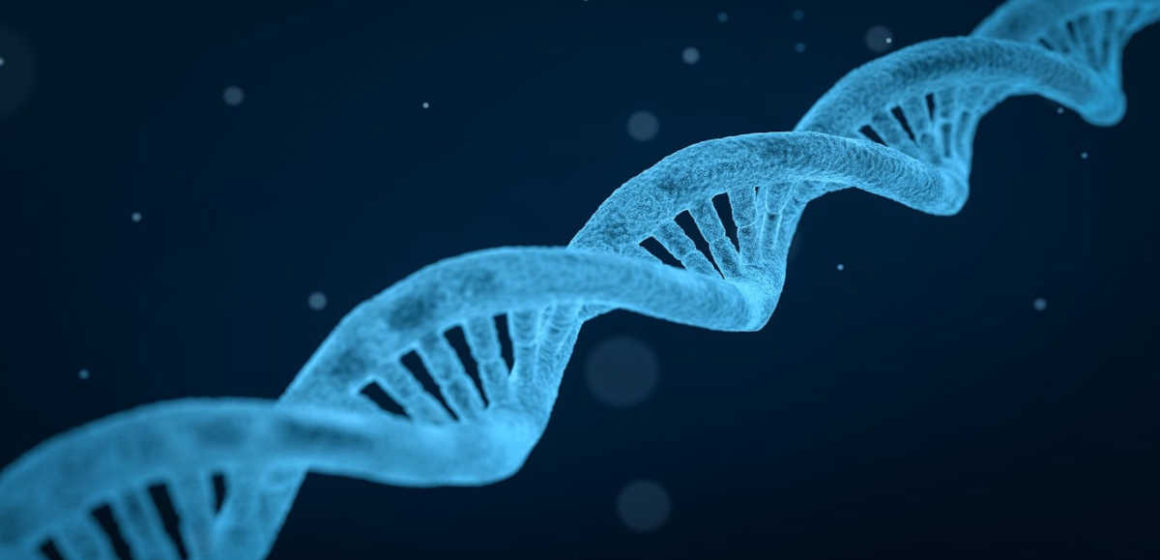Breaking the Silence: The Chilling Truth About Epigenetic Trauma – Inherited Trauma
It’s not uncommon to see patterns of certain behaviors or health conditions repeating in families over generations. Did you know this could be due to what scientists call ‘epigenetic trauma‘ – the idea that effects of trauma can actually leave a mark on someone’s genes, and potentially be passed down? In this article, we will unravel the complex science behind this phenomenon, helping you understand how it works and its impacts on our lives.
Let’s dive into an engaging journey through genetics and family history!
What is Intergenerational Trauma?
Intergenerational trauma refers to the transmission of traumatic experiences and their effects from one generation to another through genetic changes and DNA modifications.
Definition and explanation
Intergenerational trauma, or epigenetic trauma, has its roots in the concept that traumatic events can leave a chemical mark on a person’s genes. This mark may alter the function of these genes and potentially pass down to subsequent generations.
The field of neuroepigenetics delves into this intricate process examining how trauma can lead to genetic changes in an individual’s DNA. These modifications aren’t changes to the DNA sequence itself but involve alterations in how cells interpret DNA through a process known as “gene expression“.
It means one’s experience influences not just their own expression of life but possibly those who come after them too.
Genetic changes and DNA
Genetic changes are central to understanding the inheritance of trauma. These alterations can occur as a response to stress or trauma, creating what scientists refer to as epigenetic marks on our DNA.
These marks do not alter the genetic code itself but change how cells interpret the code, leading to different patterns of gene expression.
Epigenetics provides a framework for comprehending how experiences can have lasting impacts at the molecular level. Our bodies may imprint chemical signs onto our genes in reaction to traumatic events, effectively changing how specific parts of our DNA function without altering their fundamental structure.
This process suggests that the consequences reverberate far beyond an individual’s life, potentially affecting future generations via inherited DNA modifications.
The theory of trauma being inherited
Epigenetic trauma is deeply tied to the concept of inherited trauma. Scientists suggest that traumatic experiences can leave a chemical mark on an individual’s genes, altering their DNA.
This alteration isn’t just confined to the individual who experienced trauma; it may also echo down through generations. The notion relies heavily on the study of epigenetics, exploring how external factors can influence our genetic makeup.
The legacy of this inherited trauma moves beyond physical attributes and into more nebulous areas like behavior and mental health. For example, studies have looked at alterations in stress hormone output due to inherited trauma influences from prior generations.
Moreover, epigenetics provides further understanding into how these DNA modifications occur and effect generational cycles. It outlines a path revealing how life experiences could directly interact with our biological selves, painting a broader picture of what inheritance truly implies.
The Science of Epigenetic Inheritance
Trauma’s effects can pass from generation to generation through mechanisms involving genetic changes and neuroepigenetics.
How trauma’s effects can pass from generation to generation
Epigenetic trauma suggests that the effects of trauma can be inherited and passed down through generations. Studies have shown that traumatic experiences can leave chemical marks, called epigenetic marks, on a person’s genes.
These marks can then be inherited by future generations, potentially leading to long-lasting effects on their physical and mental health. Research has focused on understanding the mechanisms behind this intergenerational transmission of trauma and the potential role of genetic changes in DNA.
While more research is needed, particularly in humans, evidence supports the idea that trauma’s legacy can reverberate across generations through DNA alterations and epigenetics.
Neuroepigenetics and genetic changes
Research in the field of neuroepigenetics has shed light on the relationship between trauma and genetic changes. Neuroepigenetics explores how experiences, such as traumatic events, can lead to modifications in our DNA.
These modifications, known as epigenetic marks, can occur as a result of chemical reactions triggered by stressors. Importantly, these marks have the potential to be inherited by future generations, potentially leading to intergenerational effects of trauma.
Understanding the role of neuroepigenetics in genetic changes can help us comprehend how traumatic experiences reverberate through time and impact subsequent generations.
How Does Intergenerational Trauma Work?
Intergenerational trauma works through specific mechanisms and processes that involve the transmission of trauma effects across generations.
Mechanisms and processes involved
Epigenetic trauma involves various mechanisms and processes that contribute to the inheritance of trauma. One key process is the transmission of trauma effects through generations.
This occurs when epigenetic marks, chemical modifications on DNA, are passed down from parents to offspring. These marks can alter gene expression patterns and influence how subsequent generations respond to stress and traumatic experiences.
Additionally, neuroepigenetics plays a role in understanding the genetic changes associated with trauma inheritance. Researchers have identified specific genes that are susceptible to alterations due to environmental factors such as stress and trauma exposure.
By unraveling these mechanisms and processes, we gain a deeper understanding of how traumatic experiences reverberate across generations and impact individuals’ physical and mental well-being throughout their lives.
One important aspect to consider is that inherited trauma is not solely dependent on genetic changes but also influenced by other factors like societal and cultural contexts. These external influences can shape an individual’s response to traumatic events, thereby adding another layer of complexity to the intergenerational transmission of trauma effects.
Transmission of trauma effects
Epigenetic trauma refers to the transmission of trauma effects from one generation to another. Studies have shown that traumatic experiences can leave chemical marks on a person’s genes, known as epigenetic marks.
These marks can be passed down through generations, potentially impacting the physical and mental health of individuals in future generations. The intergenerational transmission of trauma effects and the role of epigenetics in this process have been areas of research interest.
Understanding how trauma is transmitted across generations is crucial for addressing and healing from the impact of these inherited experiences.
Long-Term Effects of Intergenerational Trauma
Intergenerational trauma can have severe long-term effects on both physical and mental health, leading individuals to develop unhealthy behaviors and coping mechanisms.
Physical and mental health impacts
Inherited trauma can have significant impacts on both physical and mental health. Studies suggest that individuals who have experienced intergenerational trauma may be more prone to developing conditions such as depression, anxiety, and post-traumatic stress disorder (PTSD).
These mental health issues can manifest in a variety of ways, including flashbacks, nightmares, and an increased sensitivity to stressful situations. In addition to the psychological effects, there is also evidence linking inherited trauma to physical health problems.
Research has shown that individuals with a history of intergenerational trauma may be at a higher risk for conditions like heart disease and autoimmune disorders. Understanding these impacts is crucial in order to provide appropriate support and treatment for those affected by inherited trauma.
Behavior and coping mechanisms
Individuals who have experienced intergenerational trauma may exhibit a range of behaviors and coping mechanisms in response to their experiences. These can include hypervigilance, emotional numbness, avoidance of traumatic triggers, and difficulty forming trusting relationships.
Coping mechanisms may vary from person to person, with some individuals turning to unhealthy coping strategies such as substance abuse or self-harm. It is important to recognize that these behaviors are often adaptive responses to trauma and should be understood within that context.
Post-Traumatic Stress Disorder (PTSD) and Trauma
PTSD and trauma have a significant impact on individuals and families, causing long-lasting physical and mental health effects.
Relationship between trauma and PTSD
Trauma and Post-Traumatic Stress Disorder (PTSD) are closely intertwined. Trauma refers to a deeply distressing event or experience that overwhelms an individual’s ability to cope, while PTSD is a specific mental health condition that can develop after experiencing or witnessing a traumatic event.
Individuals who have experienced trauma may be at risk for developing PTSD, although not everyone who experiences trauma will go on to develop the disorder. It is important to recognize this relationship in order to understand the full impact of trauma on individuals and their families.
Impact on individuals and families
Epigenetic trauma can have a profound impact on individuals and families. When trauma is inherited from previous generations, it can reverberate through family dynamics and affect the mental and physical health of those involved.
Studies have shown that individuals who experience intergenerational trauma may be more susceptible to developing post-traumatic stress disorder (PTSD) and other mental health conditions.
Additionally, coping mechanisms and behavior patterns learned from traumatised ancestors can be passed down, leading to difficulties in relationships and emotional regulation. Understanding the impact of epigenetic trauma is crucial for providing support and healing for affected individuals and their families without perpetuating the cycle of pain.
Inherited trauma not only affects individuals but also has wider implications for family units. Trauma’s legacy can alter communication patterns, create conflicts, or strain connections between family members.
The transmission of trauma effects across generations can create a complex web of shared experiences that shape how families interact with one another. It is important to recognize these intergenerational effects in order to provide appropriate interventions to promote healing within families impacted by epigenetic trauma.
Coping and Treatment for Intergenerational Trauma
Therapeutic interventions and support systems play a crucial role in helping individuals cope with and heal from intergenerational trauma.
Therapeutic interventions
Therapeutic interventions play a vital role in addressing intergenerational trauma and promoting healing. Counseling and therapy sessions are designed to provide support, validation, and guidance for individuals who have experienced traumatic events or inherited trauma.
These interventions help individuals understand the impact of trauma on their lives and develop coping mechanisms to navigate its effects. Therapists may use various approaches such as cognitive-behavioral therapy (CBT), eye movement desensitization and reprocessing (EMDR), or mindfulness techniques to assist individuals in processing their emotions and reshaping their perspectives.
By engaging in therapeutic interventions, individuals can begin to heal from the wounds of inherited trauma and work towards breaking the cycle for future generations.
Support systems and resources
Support systems and resources play a crucial role in helping individuals and families cope with intergenerational trauma. Here are some important support systems and resources that can aid in the healing process:
- Therapeutic interventions: Therapy, such as cognitive-behavioral therapy (CBT) or eye movement desensitization and reprocessing (EMDR), can help individuals process traumatic experiences and develop healthy coping mechanisms.
- Support groups: Joining support groups allows individuals to connect with others who have experienced similar trauma, providing a sense of understanding, validation, and community.
- Mental health professionals: Seeking professional help from psychologists, counselors, or psychiatrists can provide guidance and personalized treatment plans for managing the long-term effects of intergenerational trauma.
- Educational resources: Accessing educational materials, books, articles, or online resources on intergenerational trauma can increase awareness and understanding of the impact trauma has on individuals and families.
- Community organizations: Non-profit organizations or community centers often offer programs or workshops focused on trauma education, support services, and resilience-building activities.
- Advocacy groups: Engaging with advocacy groups that raise awareness about intergenerational trauma can contribute to systemic change by promoting policies that support trauma-informed care within communities.
- Self-help strategies: Practicing self-care techniques like mindfulness meditation, exercise, journaling, or engaging in creative outlets can assist individuals in managing stressors associated with inherited trauma.
- Family support networks: Building strong relationships within immediate and extended family members can provide a support system where open communication about shared experiences is encouraged.
- Cultural practices and traditions: Connecting with cultural practices or participating in traditional ceremonies may provide comfort and a sense of identity for those affected by intergenerational trauma tied to their cultural heritage.
- National helplines: Hotlines specializing in mental health issues or specific traumas offer immediate crisis intervention services for individuals experiencing distress related to intergenerational trauma.
Prevalence of Intergenerational Trauma
Intergenerational trauma is a significant issue, with research indicating its prevalence in various communities and cultures.
Statistics and research findings
In exploring the prevalence of intergenerational trauma, various statistics and research findings help paint a clearer picture of its impact. These studies provide valuable insights into the widespread nature of inherited trauma and the populations most affected by it.
|
Study |
Findings |
|
Research led by Isabelle Mansuy on mice |
Evidence that trauma can cause biochemical changes in the DNA of mice, and these changes can be inherited by subsequent generations. |
|
Studies on descendants of Holocaust survivors |
Found increased risk of post-traumatic stress disorder (PTSD), signifying potential inherited trauma. |
|
Research on African American populations |
Highlighted the intergenerational trauma stemming from racial discrimination and historical events like slavery. |
|
Study on Native/Indigenous communities |
Reported high rates of PTSD due to historical and ongoing trauma, revealing the existence of inherited trauma within these communities. |
|
Analysis of victims of severe childhood abuse |
Found these individuals are more likely to have children with behavioral and developmental problems, indicating possible transmission of trauma. |
These findings underscore the importance of recognizing and addressing intergenerational trauma across diverse populations. Moreover, they emphasize the need for therapeutic interventions and support systems to mitigate the impact of inherited trauma.
Societal and cultural factors
Societal and cultural factors play a significant role in the prevalence and transmission of intergenerational trauma. Historical events, such as slavery or wars, can have lasting effects on entire communities and future generations.
The impact of trauma is not only individual but also collective, reverberating through families and communities. Cultural norms around discussing mental health or seeking support can also influence how individuals cope with traumatic experiences and whether they are able to break the cycle of intergenerational trauma.
Understanding these societal and cultural factors is crucial for addressing and healing from the inherited effects of trauma.
Criticism and Controversies Surrounding Intergenerational Trauma
Critics question the validity of intergenerational trauma, citing challenges in studying and understanding the phenomenon.
Debates within the scientific community
Scientists within the field of epigenetics and trauma inheritance have engaged in debates regarding the extent to which traumatic experiences can be passed down through generations.
Some researchers argue that there is strong evidence supporting the concept of intergenerational trauma, pointing to studies that show genetic changes and chemical marks on genes as a result of trauma.
However, other scientists express skepticism and believe that more research is needed, particularly in humans, to fully understand the mechanism behind this phenomenon. Overall, ongoing discussions within the scientific community highlight both the potential validity and complexities surrounding the inheritance of trauma.
Challenges in studying and understanding the phenomenon
Studying and understanding the phenomenon of intergenerational trauma presents several challenges. One challenge is the complexity of unraveling how exactly trauma is passed down through generations.
While there is evidence supporting the role of epigenetic marks, further research is still needed to fully understand the mechanisms involved in transmitting traumatic experiences.
Additionally, studying intergenerational trauma in humans can be challenging due to ethical considerations and limitations in accessing relevant data. Despite these challenges, researchers continue to explore this topic in order to shed light on the lasting impact of trauma on individuals and their descendants.
Another challenge lies in distinguishing between genetic changes caused by trauma and other factors that may influence gene expression. It can be difficult to determine whether observed DNA modifications are a direct result of trauma or if they occur due to other environmental or lifestyle factors.
This highlights the need for rigorous scientific studies that carefully control for confounding variables to establish a clear link between trauma and genetic changes.
Furthermore, uncovering inherited traumatic experiences involves overcoming obstacles related to historical context and cultural variations. Certain traumas like those stemming from slavery or war have had profound impacts across entire communities or populations, making it crucial to consider the societal factors that shape individual experiences.
Conclusion: The Importance of Recognizing and Addressing Intergenerational Trauma
In conclusion, understanding and addressing the impact of epigenetic trauma is crucial in order to break the cycle of intergenerational trauma. By recognizing that traumatic experiences can be inherited and passed down through generations, we can provide support and resources to individuals and families affected by this legacy.
Through therapeutic interventions and building strong support systems, we can work towards healing and preventing the transmission of trauma to future generations.
FAQs
1. Can trauma be inherited and passed down through generations?
Yes, research suggests that traumatic experiences can leave a genetic imprint on an individual’s DNA, which may be passed down to future generations. This is known as epigenetic inheritance.
2. How does trauma affect the genetics of future generations?
Trauma can impact gene expression in individuals, leading to changes in their offspring’s genes as well. These changes can affect various aspects of physical health, mental well-being, and even behavior.
3. What are some examples of how trauma can be inherited?
Examples of how trauma can be inherited include increased susceptibility to certain mental health disorders like anxiety or depression, heightened stress response systems, and altered neurodevelopmental processes in descendants.
4. Can epigenetic effects from trauma be reversed or prevented?
While it is challenging to completely reverse the epigenetic effects of trauma, early intervention and support systems for individuals who have experienced trauma may help mitigate its impact on future generations. Additionally, promoting resilience and providing positive environments can potentially prevent or minimize these effects.
General Facts
- Epigenetic trauma refers to the idea that the effects of trauma can be passed down through generations.
- Studies support the concept of epigenetic trauma, indicating that trauma can leave a chemical mark on a person’s genes.
- These epigenetic marks can then be inherited by future generations.
- Intergenerational trauma theory suggests that genetic changes in a person’s DNA can lead to the inheritance of trauma.
- Emotional trauma, distinct from physical stress, may be passed on to subsequent generations in humans.
- The evidence for the inheritance of trauma through epigenetic marks is supported by headlines, although more research is needed, particularly in humans.
- Neuroepigenetics researcher Isabelle Mansuy describes how trauma’s effects can pass from generation to generation.
- The intergenerational transmission of trauma effects and the potential role of epigenetics in this process have been the subject of research.
- Examples of inherited trauma include trauma related to slavery and the impact of trauma on DNA.
- Healing from epigenetic trauma involves understanding and addressing the effects of trauma on future generations.
Source URLs
www.bbc.com/future/article/20190326-what-is-epigenetics
www.psycom.net/trauma/epigenetics-trauma
www.verywellhealth.com/intergenerational-trauma-5191638
www.science.org/content/article/parents-emotional-trauma-may-change-their-children-s-biology-studies-mice-show-how
www.nature.com/articles/d41586-023-01433-y
www.ncbi.nlm.nih.gov/pmc/articles/PMC6127768/

Dr. O “TheTeenDoc.” helps clinicians communicate better with their teen patients. She speaks, blogs www.TheTeenDoc.com, researches and consults on communicating with teens. She has written two e-books for parents and teens on communicating about the challenging subject of sexual health. You know, teens that bring chief complaints of belly pain, social crisis, emotional turmoil and obnoxious parents. Or, is it the parents with obnoxious teens? Sometimes she mixes that complaint up.
Dr. O speaks www.TheTeenDoc.com to and is consulted by clinicians who want advice managing difficult teen and teen-parent situations. These situations frustrate clinicians and slow down their clinics making them wonder if they’ll ever walk out the door for the day. Every day, in her own practice, Dr. O helps clinicians communicate better with teens and helping you is another level of reward. Her talks are fun and informative, and her delivery empowers clinicians to actually think teens are an awesome group to work with. Her energy about teens is contagious and has inspired her coaching clients to have less fear and more confidence with the teens in their panel. Her dedication to seeing you succeed with a group she is so passionate about is what makes Dr. O’s Lounge the place you want to be!
If you are a clinician that has teen’s in your practice, from pediatrics to internal medicine, the person with whom you need to connect is Dr. O “TheTeenDoc!” You can listen to a complimentary audio “The Art of Teen Medicine” and recommend her e-book “Are You Serious? It’s Just Sex!” to your patients. And while you’re there, become part of Dr.O’s Lounge.
Specialties: consulting, coaching, counseling, mental health, research, seminars, spanish, public speaker, teaching, communications between teens and adults



